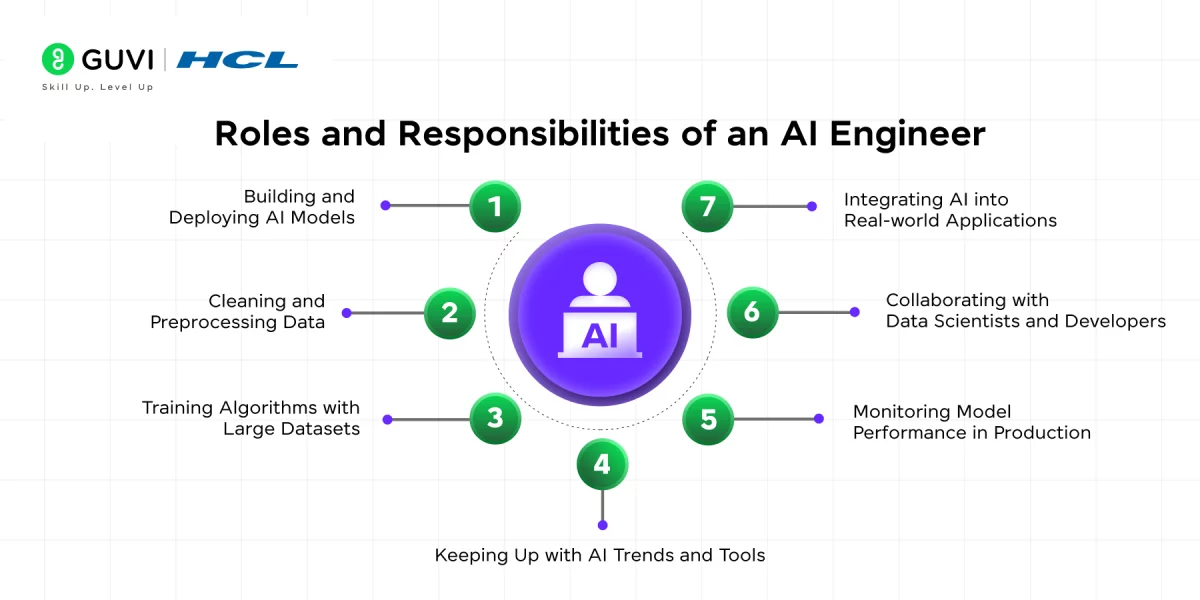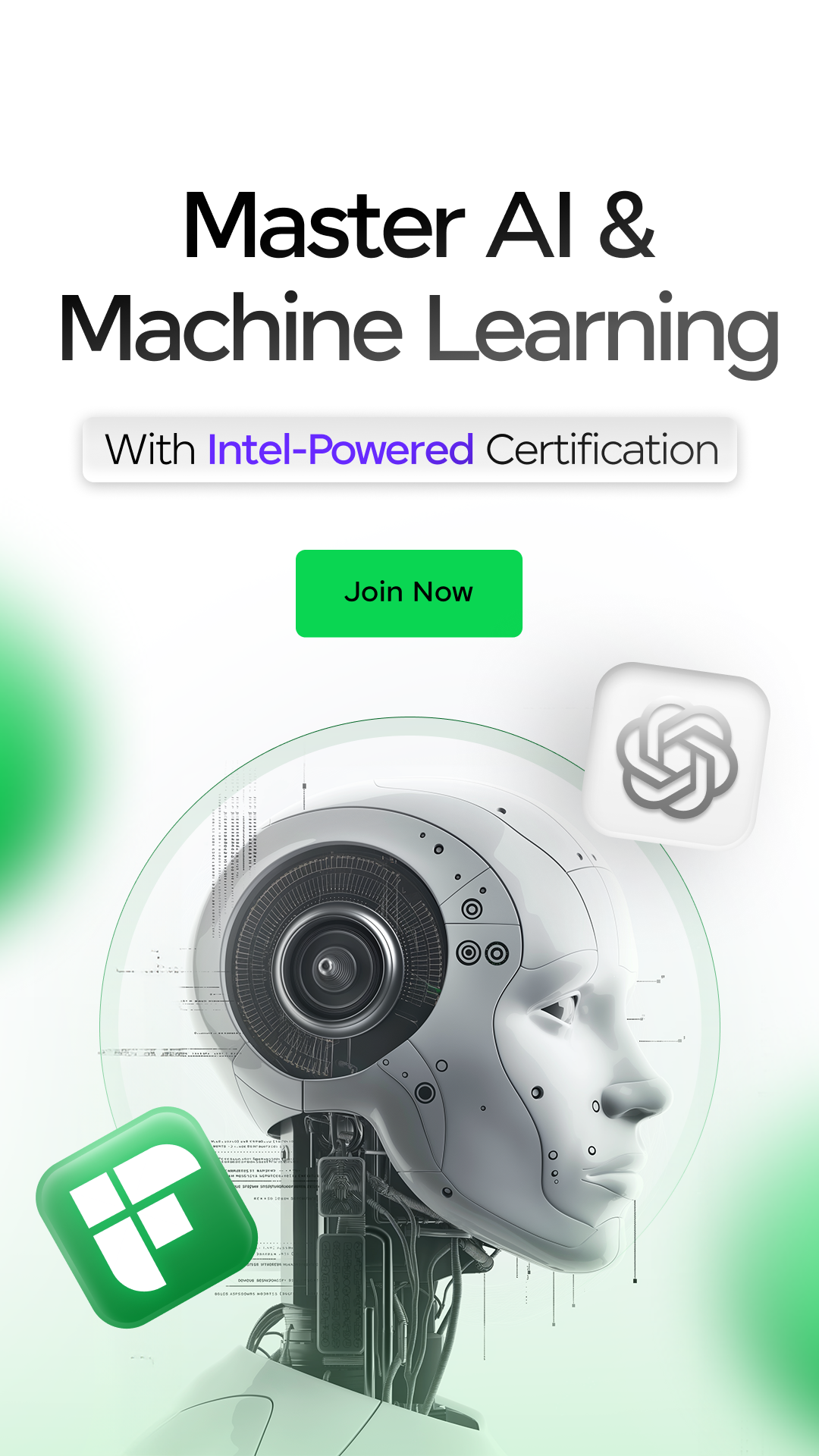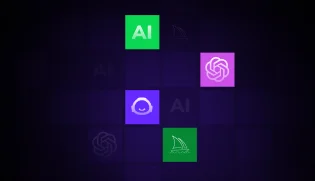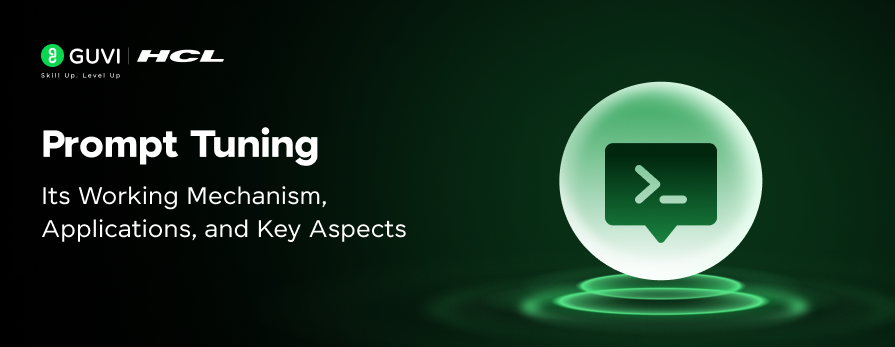
Artificial Intelligence Engineer Salary in India (2025)
Sep 29, 2025 6 Min Read 18479 Views
(Last Updated)
Artificial Intelligence is projected to generate 20 million new jobs in India by 2025, with roles like AI engineers, NLP specialists, and data scientists seeing unprecedented demand.
This signals two things:
- The demand for AI is growing faster than almost any other tech domain in India
- The growth opportunities for skilled professionals are more promising than ever
But beyond the hype, here’s what truly matters:
What is the actual Artificial Intelligence Engineer salary you can expect in India? What does the growth path look like? And what makes someone command a higher salary than others in this space?
This blog post is your practical, insight-rich guide to understanding:
- The current salary trends for AI engineers across experience levels and cities
- Key factors that influence your pay
- How AI roles compare with data science and machine learning salaries
- A clear roadmap to becoming a high-earning AI engineer in 2025
Let’s get into the details, starting with how this demand emerged and what companies are really looking for today.
Table of contents
- Who Exactly Is an AI Engineer?
- Personalized Learning Paths
- Instant Doubt-Solving
- Student Success Predictions
- Auto-Grading at Scale
- Smarter Content Decisions
- Factors That Influence Artificial Intelligence Engineer Salary
- AI Engineer Salary Comparison Based on Experience
- Salary Comparison Based on Company Type
- Salary Comparison Based on Cities
- Salary Based on Role Type
- What Makes You a High-Earning AI Engineer?
- Wrapping Up
- FAQs
- Is AI a High-Paying Job in India?
- Which companies hire AI Engineers in India?
- What is the qualification for an AI job in India?
- Is AI a good career choice in India?
- How much does a career in AI make in India?
Who Exactly Is an AI Engineer?

An AI Engineer is someone who builds systems that mimic human intelligence — systems that learn from data, make smart decisions, and get better over time.
But let’s skip the dictionary definition for a second. Want to understand what an AI Engineer does? Let’s place them inside a fast-growing EdTech company.
Here’s how they add value across the board:
1. Personalized Learning Paths
Think of how Netflix knows what you want to watch. AI Engineers apply the same logic to education, building systems that recommend the right courses to students based on their past performance, pace, and learning behavior.
2. Instant Doubt-Solving
No more waiting for a reply. AI Engineers develop intelligent chatbots or virtual tutors that solve student queries in real-time, anytime.
3. Student Success Predictions
They build models that alert mentors about students likely to drop off, fall behind, or need a push, so the right intervention happens at the right time.
4. Auto-Grading at Scale
From quizzes to long answers, AI Engineers use Natural Language Processing (NLP) to evaluate and give feedback without needing manual effort.
5. Smarter Content Decisions
They dig deep into learner behavior data to flag what’s working, what’s boring, and what needs to be improved, helping content teams make courses more effective.
In short, an AI Engineer is not just a coder or data wizard. They’re the intelligence layer of the product — the one that makes the platform smarter, more adaptive, and always one step ahead of user needs.
Factors That Influence Artificial Intelligence Engineer Salary
| Factor | Details |
| Experience Level | – Entry-Level (0–2 yrs): ₹3.0–12.0 LPA – Mid-Level (3–5 yrs): ₹12.0–31.5 LPA – Senior (6+ yrs): ₹20.0–50.0+ LPA |
| Location | – Tier 1 Cities (e.g., Bengaluru, Hyderabad, Mumbai): ₹3.0–50.0 LPA, 10–25% above national average – Tier 2 Cities (e.g., Chennai): Lower salaries, reduced cost of living |
| Company Type | – Tech Giants (e.g., Google, Microsoft): ₹25.0–94.0+ LPA, with bonuses and stock options – IT Firms (e.g., TCS, Infosys): ₹3.0–45.0 LPA |
| Educational Background | – Top Institutes (e.g., IITs, IISc): Higher salary offers – Other Institutions: Salaries depend on skills and portfolio strength |
| Skill Set | – In-demand skills: Machine Learning, Deep Learning, NLP, Python, TensorFlow, PyTorch – Cloud expertise (e.g., AWS) boosts offers |
| Certifications & Projects | – Certifications (e.g., Google Cloud, AWS): Enhance marketability – Strong projects (e.g., GitHub, Kaggle) demonstrate expertise |
| Interview & Negotiation | – Strong technical interviews secure higher offers – Effective negotiation and communication skills increase compensation |
AI Engineer Salary Comparison Based on Experience
In the AI field, experience isn’t just about time; it’s about the complexity of the problems you’ve solved and the intelligence your systems have learned to build.
Entry-level engineers usually start by supporting existing AI models or contributing to data pipelines. But as you move up, your role evolves into designing intelligent systems, leading model deployment, and aligning AI with business goals, and so does your pay.
| Experience Level | Salary Range (₹ LPA) | Key Factors Influencing Pay |
| Fresher (<1 year) | 3–12 | Projects, internships, and certifications (e.g., TensorFlow/PyTorch) significantly boost offers. |
| 1–3 years | 3.6–27 | Specialization (e.g., NLP, CV) and company tier (product vs. service). |
| 4–7 years | 4.8–50 | Leadership in AI deployments, cloud/AI integration expertise. |
| 8+ years | 18–65 | PhD/publications, strategic impact (e.g., AI architecture), and MNC roles. |
Salary Comparison Based on Company Type
The kind of company you work for shapes both your compensation and the kind of AI problems you get to solve.
AI roles in product-driven tech firms, deep-tech startups, or global R&D centers often demand deeper innovation, and they pay accordingly. Meanwhile, service-based companies may offer more structured environments with steadier growth but fewer high-impact AI use cases.
Here’s a breakdown of how salary trends vary across different company types for AI engineers in India:
| Company Type | Salary Range (₹ LPA) | Notable Examples (Avg. Pay) |
| Product-Based | 11.6–65 | Google (₹22–36 LPA), NVIDIA (₹23–50 LPA) |
| Service-Based | 3–21 | TCS (₹6–21 LPA), Infosys (₹7–12 LPA) |
| VC-Funded Startups | 6–58 | Dimaag-AI (₹54 LPA for niche roles) |
| Govt/Academic Labs | 3–15 | Lower but stable, IISc/DRDO projects. |
Salary Comparison Based on Cities
Where you work as an AI engineer isn’t just about geography; it’s about access to innovation, industry clusters, and earning potential.
Cities like Bengaluru, Hyderabad, and Mumbai are home to top AI research labs, global tech firms, and fast-scaling startups. This drives up both the demand and the pay. Meanwhile, cities like Pune and Chennai offer solid salaries with the added benefit of a lower cost of living, which often translates to higher take-home savings.
Here’s a city-wise breakdown to help you align your career moves with both income and quality of life:
| City | Salary Range (₹ LPA) | Why Pay Varies |
| Bengaluru | 3.5–40.8 | Highest density of tech giants (Google, IBM) and startups. |
| Hyderabad | 3.9–35 | Microsoft/Google R&D centers drive competition. |
| Pune | 3.8–22 | Strong edu-tech and automotive AI sectors. |
| NCR | 4.3–23 | Fintech and consulting firms (Deloitte, IBM). |
| Chennai | 3.8–18 | Lower cost of living but fewer top-tier firms. |
| Tier-2 | 3–15 | Limited high-paying roles; dominated by service companies. |
Salary Based on Role Type
In the world of Artificial Intelligence, not all roles are created equal, and neither are their salaries. Your compensation often depends not just on your experience, but also on the complexity, rarity, and business impact of your role.
For example, AI research roles or Generative AI positions, especially those focused on tasks like LLM fine-tuning, transformer architecture optimization, or prompt engineering, require a deep understanding of niche technologies. These roles are typically harder to fill and play a crucial part in a company’s innovation efforts, which is why they offer significantly higher pay.
On the other hand, applied AI roles such as AI product engineers, data annotators, or ML ops specialists may not demand the same level of research expertise, but they still provide strong compensation for those with solid implementation skills.
In this section, we’ll look at how different AI job types compare in terms of required skills and the salaries they offer, helping you identify the roles that match your interests and earning goals.
| Role Type | Salary Range (₹ LPA) | Key Skills & Complexity |
| Core AI Engineer | 3.5 – 30 | Strong Python, ML algorithms, model training, hands-on with frameworks like TensorFlow or PyTorch |
| GenAI / LLM Engineer | 6 – 58 | Expertise in transformer models, fine-tuning LLMs, prompt engineering, and deep NLP knowledge |
| MLOps Engineer | 9 – 45 | Proficient in model deployment, CI/CD, Docker, Kubernetes, cloud platforms (AWS, GCP, Azure) |
| AI Research Scientist | 10 – 70 | Deep research in AI/ML, PhD or academic experience, published papers, cutting-edge innovation |
| AI Product Engineer | 8 – 30 | Combines AI implementation with UI/UX, product development, and cross-functional collaboration |
Want to stand out in this high-growth AI job market? Beyond knowing the salary trends, what really accelerates your career is hands-on experience with real tools and data. That’s where GUVI’s Free Resources can help. From guided projects to curated learning materials in AI and Machine Learning, it’s a powerful way to upgrade your skills without spending a rupee.
What Makes You a High-Earning AI Engineer?
You’ve seen the salary numbers. You understand how demand is skyrocketing. But numbers alone don’t paint the full picture of what it takes to stand out and earn top-tier pay in the AI field in 2025.
India produces around 1.5 million engineering graduates each year, with a growing number specializing in AI, machine learning, and related fields. Out of these, roughly 80,000 to 100,000 professionals are working as AI engineers—fresh talent and those who have upskilled alike. The competition is fierce.
That’s why this section is crucial: knowing what truly makes you valuable in this fast-evolving field is what separates a good AI engineer from a high-earning one.
Here’s a breakdown of the key factors that help you command the best salaries and accelerate your career growth:
1. Strong Technical Foundations
High-paying AI engineers have a deep understanding of core AI and machine learning concepts. This includes expertise in:
- Machine Learning (supervised, unsupervised, reinforcement learning)
- Deep Learning (CNNs, RNNs, Transformers, Diffusion Models)
- Natural Language Processing (LLMs like GPT-4, BERT, Claude)
- Computer Vision (object detection, segmentation, generative AI)
They are also proficient in popular AI frameworks and tools like TensorFlow, PyTorch, Hugging Face, and cloud AI platforms such as AWS SageMaker and Google Vertex AI. Strong programming skills, especially in Python, with knowledge of C++ or CUDA for performance optimization, are essential. Writing clean, efficient, and scalable code is expected.
2. Specialization in High-Demand Areas
Top earners often focus on cutting-edge niches where skills are scarce but highly valued:
- Generative AI and Large Language Models (fine-tuning and deploying models like GPT-4 and Llama 2)
- MLOps and AI deployment technologies (Docker, Kubernetes, CI/CD pipelines)
- Reinforcement Learning applications in robotics, gaming, or finance
- Domain-specific AI expertise, such as healthcare, finance, or autonomous systems
Specializing in these areas increases your market value significantly.
3. Ability to Deploy AI at Scale
Companies pay premium salaries to engineers who don’t just build models but deploy them effectively for real-world use:
- Experience with MLOps tools like MLflow, Kubeflow, or TensorFlow Serving
- Optimizing models for performance—ensuring low latency and high throughput
- Knowledge of distributed training frameworks such as Ray or Horovod
This production-level expertise is a key differentiator.
4. Business & Problem-Solving Acumen
High-paying AI engineers understand business impact, not just algorithms. They:
- Translate complex business problems into actionable AI solutions
- Know when AI is the right tool and avoid over-engineering
- Optimize for cost-efficiency, balancing cloud expenses with model accuracy and inference speed
This mindset makes you a valuable asset beyond coding skills.
5. Soft Skills That Increase Your Value
Technical skills alone don’t guarantee top pay. Communication and leadership play a big role:
- Ability to explain AI concepts clearly to non-technical teams and stakeholders
- Leading and mentoring AI teams effectively
- Entrepreneurial mindset – building startups, consulting, or freelancing can dramatically increase earning potential
6. Continuous Learning & Adaptability
The AI field evolves rapidly. Staying on top means:
- Keeping up with the latest research through papers and conferences (like NeurIPS, ICML)
- Experimenting with new tools and frameworks, adapting quickly as the technology landscape changes
Those who commit to lifelong learning stay ahead and earn accordingly.
Want to Be the AI Engineer Recruiters Remember?
Reading about top salaries is one thing. Earning them is another. If you’re serious about breaking into the top tier, your portfolio needs more than just course certificates. It needs real, deployable AI projects that prove you can apply your skills in practical settings.
That’s where GUVI’s Zen Class in AI & ML delivers real value.
If you’re stuck in endless tutorials and want to build a portfolio that truly gets you noticed, this is the route that makes a difference. Explore GUVI’s Zen Class in AI & ML Course
Wrapping Up
“Is AI already saturated?”
“What if I don’t come from a top college?”
“What if I’m not a math genius?”
We hear you. These are common questions, and they deserve honest answers.
The truth? This is one of the best times to enter the world of AI.
According to NASSCOM and BCG’s 2024 report, India will need over 1 million AI professionals by 2027, yet we’re currently meeting only 35-40% of that demand. Even globally, McKinsey projects AI and automation to create over 85 million new jobs by 2025, many of which are in emerging roles like LLM engineers, MLOps specialists, and applied AI researchers.
And no, you don’t need to be from an IIT or have a PhD to break into this field.
In today’s AI ecosystem, what matters most is:
- Skill over pedigree: Recruiters care more about your GitHub, Kaggle, or project portfolio than your college name.
- Proof over promises: A few solid, production-ready AI projects beat 10 online course certificates.
- Curiosity over credentials: Continuous learners who stay updated with tools, frameworks, and research consistently outperform those relying only on degrees.
So if you’re wondering whether you can carve a successful, high-paying career in AI, the answer is yes, as long as you’re willing to put in focused, practical effort.
This blog wasn’t just about salaries. It’s about strategy, positioning, and skill-building. Now that you’ve seen the data and understood what truly drives high earnings in this field, the next step is yours to take.
FAQs
1. Is AI a High-Paying Job in India?
Yes, AI roles are among the top-paying tech jobs in India. AI/ML Architects can earn up to ₹95 LPA, with mid-level engineers earning ₹12–20 LPA.
2. Which companies hire AI Engineers in India?
Top recruiters include TCS, Cognizant, Infosys, Wipro, Amazon, Flipkart, and HCL. Companies are expanding AI teams across cities like Bengaluru, Hyderabad, Pune, and GIFT City to drive innovation.
3. What is the qualification for an AI job in India?
A bachelor’s degree in CS, IT, or Maths is preferred. You also need Python, ML, and cloud skills. AI certifications from IITs, Coursera, or GUVI can boost chances.
4. Is AI a good career choice in India?
Definitely. AI is in high demand across healthcare, finance, edtech, and e-commerce. Government AI missions and rising startup adoption make it a future-proof, opportunity-rich career in India.
5. How much does a career in AI make in India?
Freshers earn ₹5–10 LPA, mid-level engineers ₹12–20 LPA, and seniors ₹30–50+ LPA. Salaries vary by city, domain, and expertise. Niche roles like GenAI lead pay even more.





























Did you enjoy this article?